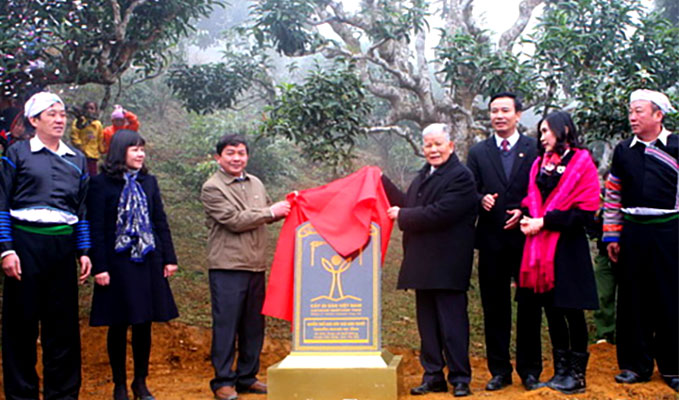A group of 400 Shan tea plants in the northern mountainous province of Yen Bai have been recognised as Vietnamese heritage trees.

The plants dating back to between 100 and 300 years ago are located in Suoi Giang commune. They grow on the Hoang Lien Son mountain range and have long been an integral part of the local Mong ethnic community.
Suoi Giang is home to around 500 hectares of Shan tea plantations, which produce up to 500 tonnes of tea leaves annually.
In 2011, the Viet Nam Association for Conservation of Nature and Environment launched a programme aiming to select and honour the country’s heritage trees in a bid to conserve their gene sources, while raising public awareness of protecting the environment.
It also contributes to promoting the diversification and abundance of Viet Nam’s flora as well as developing scientific research in the field.
To win the honour, the trees must be at least 200 years old in the case of wild trees, and at least 100 years for those planted. Moreover, the trees should be connected with the historical and cultural characteristics of the area where they grow.
Those, which do not meet the criteria, yet have special values to science, history or culture, can also earn recognition.
The number of recognised heritage trees is currently about 970.